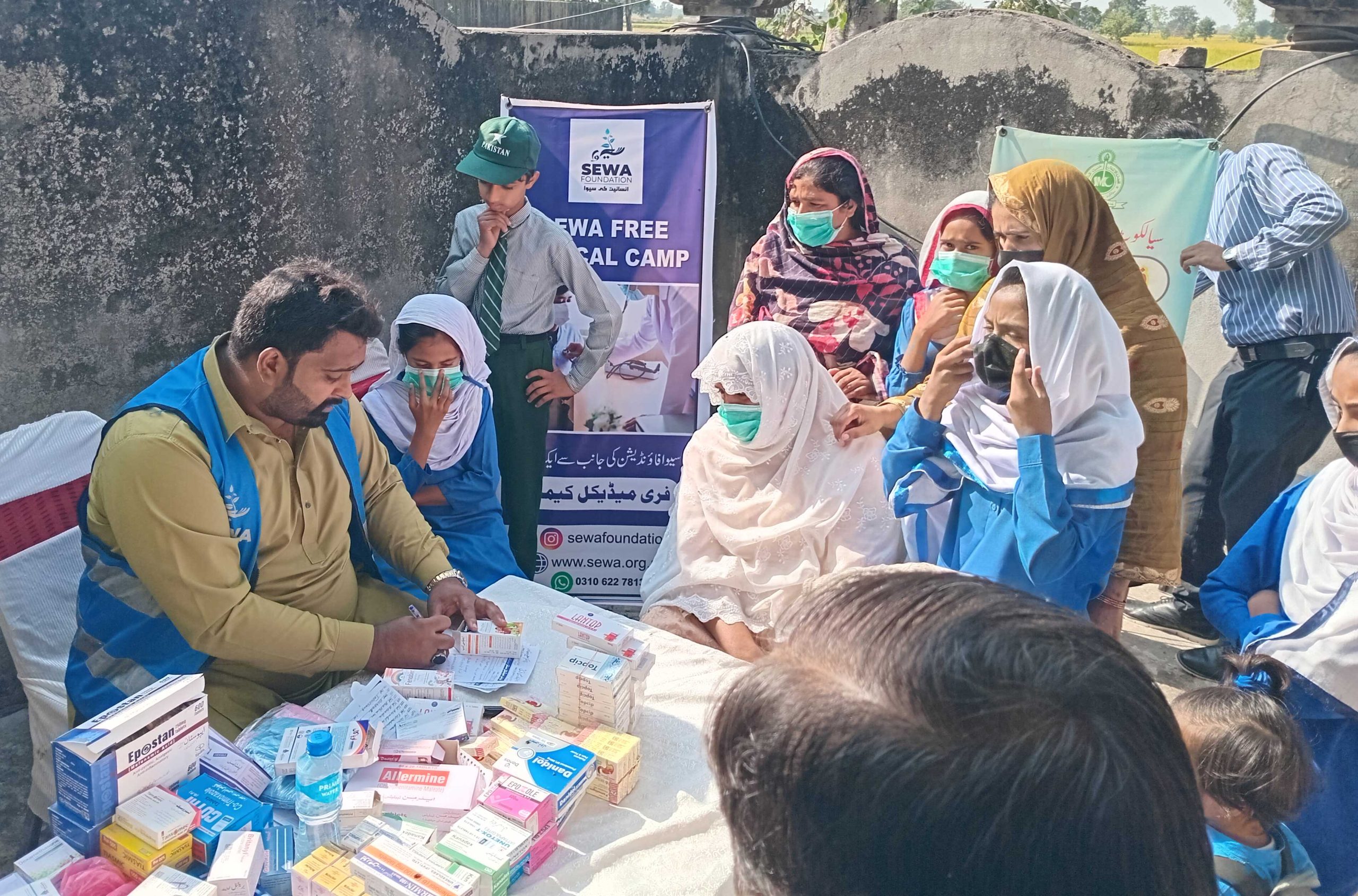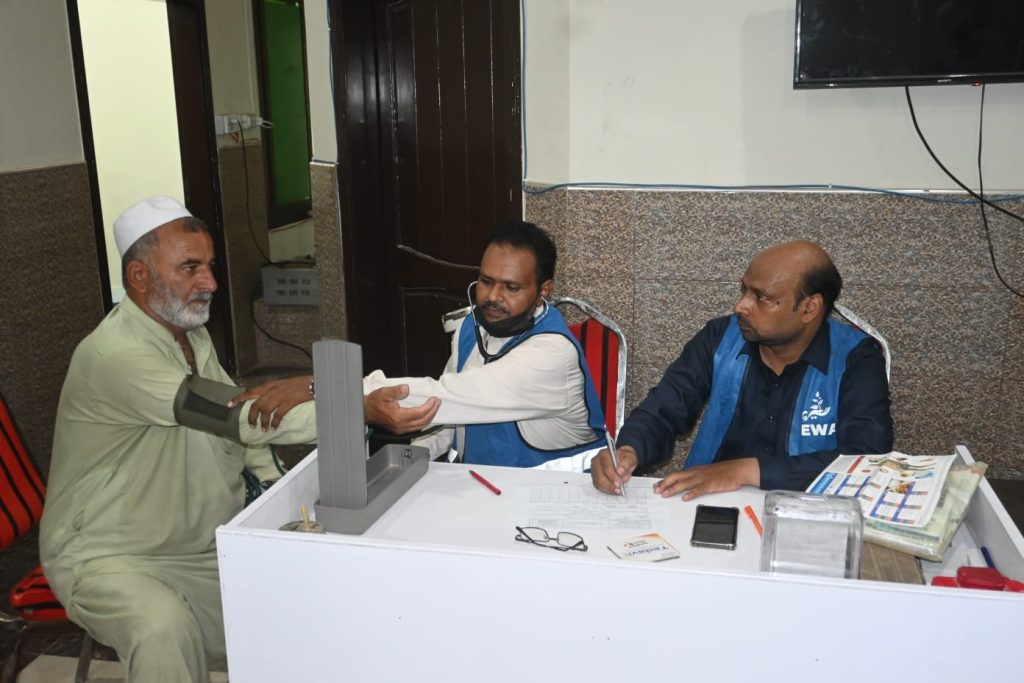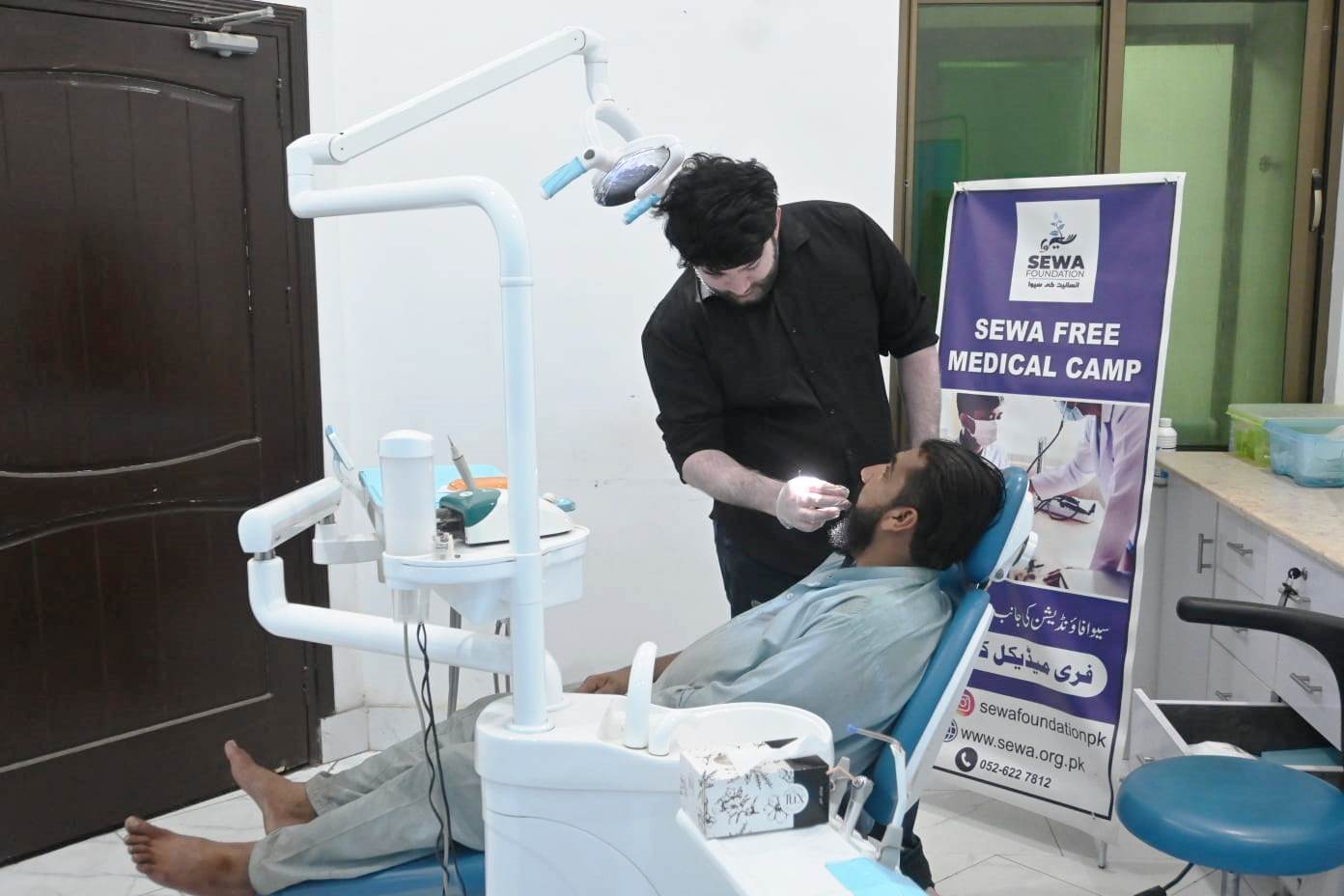SEWA Foundation
Access to Medical Care
SEWA Foundation implements medical relief initiatives to support individuals and families who face barriers to accessing basic healthcare. Through free medical camps and patient support efforts, the foundation helps bridge gaps in treatment and essential medical services.

SEWA Foundation
Through this program, SEWA Foundation works to:
- Organized free medical camps to provide basic healthcare services to underserved communities.
- Supported patients requiring medical assistance, including help with critical treatments.
- Improved access to preventive care for mothers, children, and elderly individuals.
- Promoted basic health awareness, hygiene practices, and early disease prevention.
- Helped individuals receive timely medical care while maintaining dignity and respect.
These efforts lead to measurable impact:

Increased access to healthcare for underserved populations

Reduced number of untreated and preventable illnesses

Improved maternal and child health indicators

Healthier, more informed communities with better quality of life
Our Achievements

Free Medical Camp at Fatima Poli Clinic

Patients Receiving Free Medicine

Free Dental Checkups Provided to Community Members
